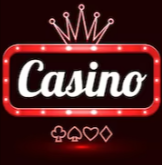Understanding the Casino Landscape in Denmark
In recent years, Denmark has become a prominent market for online gambling, backed by a strong regulatory body and a well-structured licensing framework. Danish players enjoy access to a wide variety of online casinos, but many still face the fundamental choice: should they play on licensed Danish casinos regulated by Spillemyndigheden, or consider unlicensed options, including udenlandske betting sider?
The answer isn’t as black and white as some believe. While many assume that licensed equals safe and unlicensed equals risky, the reality is far more complex. From bonus structures and withdrawal limits to data privacy and legal consequences, there are multiple dimensions to this debate—some of which might surprise even seasoned players.
This guide will break down the advantages, pitfalls, and misconceptions on both sides, providing a deep dive into how licensed and unlicensed Danish casinos truly compare.
The Legal Foundation: Who’s Watching?
The primary difference between licensed and unlicensed casinos lies in who regulates them. In Denmark, online gambling is overseen by Spillemyndigheden, the Danish Gambling Authority. It ensures operators comply with national laws, implement responsible gambling tools, and pay taxes to the Danish state.
Licensed casinos must:
- Register with Spillemyndigheden
- Integrate with ROFUS (the national self-exclusion register)
- Enforce strict KYC (Know Your Customer) processes
- Comply with advertising regulations and transparency standards
On the other hand, unlicensed casinos often operate under international licenses—commonly from Malta (MGA), Curaçao, Gibraltar, or Isle of Man. While these jurisdictions also maintain regulatory bodies, their standards vary in stringency, and none are subject to Danish national law.
It’s legal for Danes to play on foreign platforms, but it’s illegal for those platforms to target Danish players directly without a license. This legal nuance is crucial: while players aren’t punished, operators can face sanctions for marketing to Danes unlawfully.
Bonus Structures: Generosity vs. Restriction
One of the biggest differentiators players notice right away is the bonus structure.
Licensed Danish casinos are heavily restricted in the bonuses they can offer. The most common limitation is:
- One-time welcome bonus per player per casino
(Often capped and with stringent wagering requirements)
Additionally, cashback programs, VIP clubs, and recurring promotions are tightly regulated. While this ensures fairness and reduces the risk of gambling addiction, it also makes these sites feel less rewarding for high-frequency or high-stakes players.
In contrast, unlicensed casinos are often far more aggressive in their promotional tactics:
- Weekly cashback
- Reload bonuses
- Free spin packages
- High roller incentives
- Loyalty programs with multiple tiers
While these offers are enticing, they are also unregulated. This means that players must pay closer attention to bonus terms, especially wagering requirements, withdrawal caps, and eligibility clauses.
Security and Player Protection
At face value, many unlicensed casinos appear similar to their regulated counterparts. They feature SSL encryption, modern interfaces, and even responsible gaming pages. But beneath the surface, major differences exist.
Licensed Danish casinos offer:
- Protection through ROFUS (voluntary self-exclusion)
- Mandatory verification before withdrawal
- Independent auditing of games (via eCOGRA or similar)
- Guaranteed payout policies enforced by law
- Local support and dispute resolution pathways
Unlicensed casinos may or may not offer:
- Proper dispute mechanisms
- Transparent game RTP (Return to Player)
- Responsible gambling integration
- Immediate access to funds in case of conflict
To be clear: not all unlicensed casinos are unsafe. Some are operated by world-class companies with excellent reputations. But without Spillemyndigheden’s oversight, the burden of research and vigilance falls entirely on the player.
Game Variety and Software Providers
Licensed Danish casinos tend to have agreements with established providers such as NetEnt, Play’n GO, and Evolution. However, due to the licensing limits, some niche or newer game providers aren’t always available.
Unlicensed casinos often showcase a broader catalog, including:
- Niche software developers (e.g., Nolimit City, Hacksaw Gaming)
- Provably fair blockchain-based games
- Custom live casino environments
- Larger selection of high-volatility games
This broader scope appeals to seasoned players looking for something beyond the usual slot lineup. Moreover, unlicensed sites often launch new games earlier, without waiting for regional approval.
Payment Methods and Withdrawal Speed
Another important factor is banking.
Licensed Danish casinos offer limited but secure banking options such as:
- Dankort
- MobilePay
- Bankoverførsel
- Credit cards with local verification
These ensure compliance with AML (anti-money laundering) laws but can sometimes delay payouts—especially for large wins requiring enhanced verification.
Unlicensed casinos, in contrast, offer a wider range of deposit and withdrawal options, including:
- Cryptocurrencies (Bitcoin, Ethereum, Litecoin)
- E-wallets (Skrill, Neteller)
- Prepaid cards and vouchers
- Instant bank transfers via third-party services
In many cases, withdrawals are faster—especially on crypto-based platforms where funds can be received within minutes. However, players must be cautious of withdrawal fees, unverified payment gateways, or unclear transaction histories.
Responsible Gambling and ROFUS Integration
One of the most advanced tools in the licensed casino environment is ROFUS—the Danish national self-exclusion register. This system allows players to block themselves from all licensed gambling platforms with a single action.
ROFUS integration is:
- Mandatory for all licensed casinos
- Centralized and state-monitored
- Enforced across all marketing and login attempts
This system is essential for those struggling with gambling addiction. It ensures total exclusion and protects vulnerable individuals.
Unlicensed casinos, by definition, are not connected to ROFUS. While some international sites offer in-house self-exclusion tools, they are neither centralized nor guaranteed. This loophole allows excluded players to continue gambling, undermining national safety initiatives.
Taxation of Winnings
Here’s a point many players misunderstand:
- Winnings from Danish-licensed casinos are tax-free for Danish residents.
- Winnings from casinos licensed in the EU (e.g., Malta) are also generally tax-free under EU regulations.
- Winnings from non-EU casinos (e.g., Curaçao) may be taxable depending on Danish tax law interpretation and reporting.
So, while unlicensed platforms may offer better bonuses, they can come with future tax implications—especially for high-volume players.
Consulting a local tax adviser is strongly recommended if you’re using offshore sites regularly and withdrawing substantial amounts.
Transparency and Terms & Conditions
One of the most underrated areas of comparison is the clarity of terms and conditions. Licensed Danish casinos must present their terms in Danish, with clear and readable explanations of all rules.
This includes:
- Bonus conditions
- Wagering multipliers
- Game contribution percentages
- Time limits on offers
Unlicensed casinos vary wildly. Some offer professional, multilingual legal pages. Others bury critical clauses in hard-to-find documents or use vague phrasing that leads to disputes.
Always read the fine print. Never rely solely on flashy banners or support chat responses.
Player Experience and Support
From a UX perspective, both licensed and unlicensed casinos can offer sleek, user-friendly interfaces. However, the quality of customer support can vary drastically.
Licensed Danish platforms often have Danish-speaking staff available via live chat, email, or phone during extended hours. Their support teams are trained under regulatory frameworks and must log all disputes.
Unlicensed casinos often rely on 24/7 English-language live chat but lack consistent escalation policies. Some offer excellent service, while others fall short, particularly when issues involve delayed payouts or bonus misinterpretations.
Why Players Choose Unlicensed Casinos
Despite the risks, thousands of Danes still flock to unlicensed platforms. Why?
- Better bonuses and promotions
- Faster and more flexible withdrawals
- Crypto support for privacy
- Broader game selection
- Lack of ROFUS integration (controversial, but true)
Some players also feel restricted by Denmark’s tight regulations and seek more freedom abroad, despite the lack of oversight.
However, this path is not without its challenges, especially for players who don’t fully understand the potential consequences of unregulated gambling.
Why Staying Licensed Still Matters
For newer or more cautious players, licensed casinos remain the safer and more transparent choice. With clear rules, legal protection, tax-free winnings, and integrated responsible gambling tools, the value of regulatory structure cannot be overstated.
Moreover, the Danish Gambling Authority frequently audits licensed casinos, ensuring fair play and enforcing consumer rights—something no offshore regulator can guarantee locally.
Expert Insights: The Grey Zone
Experts in the gambling industry often emphasize that the true battle isn’t licensed vs. unlicensed, but trustworthy vs. untrustworthy. There are excellent unlicensed casinos out there—just as there are poorly managed licensed ones.
That said, the margin for error is far smaller on the licensed side. For casual players, the difference might be negligible. For high-rollers, professional gamblers, or bonus hunters, the distinction becomes far more consequential.
Understanding not just what a casino offers, but how and under what laws it operates, is essential to long-term success and safety.
Final Verdict: Which Side Should You Choose?
There’s no one-size-fits-all answer. Your ideal platform depends on:
- Your risk tolerance
- Your gambling frequency
- Your desire for bonuses and promotions
- Your need for responsible gaming tools
- Your comfort with international law and taxation
If you value security, transparency, and legal clarity, Danish-licensed casinos remain the gold standard.
If you’re a high-volume, tech-savvy player seeking bonus flexibility and faster payments—and willing to do the extra research—reputable unlicensed platforms may offer a more tailored experience.
But tread carefully. The allure of better bonuses can sometimes mask hidden pitfalls. And when in doubt, always prioritize your personal protection over promotional glitz.
In the ever-evolving landscape of online gambling, the smartest players aren’t the ones who chase the biggest bonuses—they’re the ones who understand the rules of both the game and the market.

